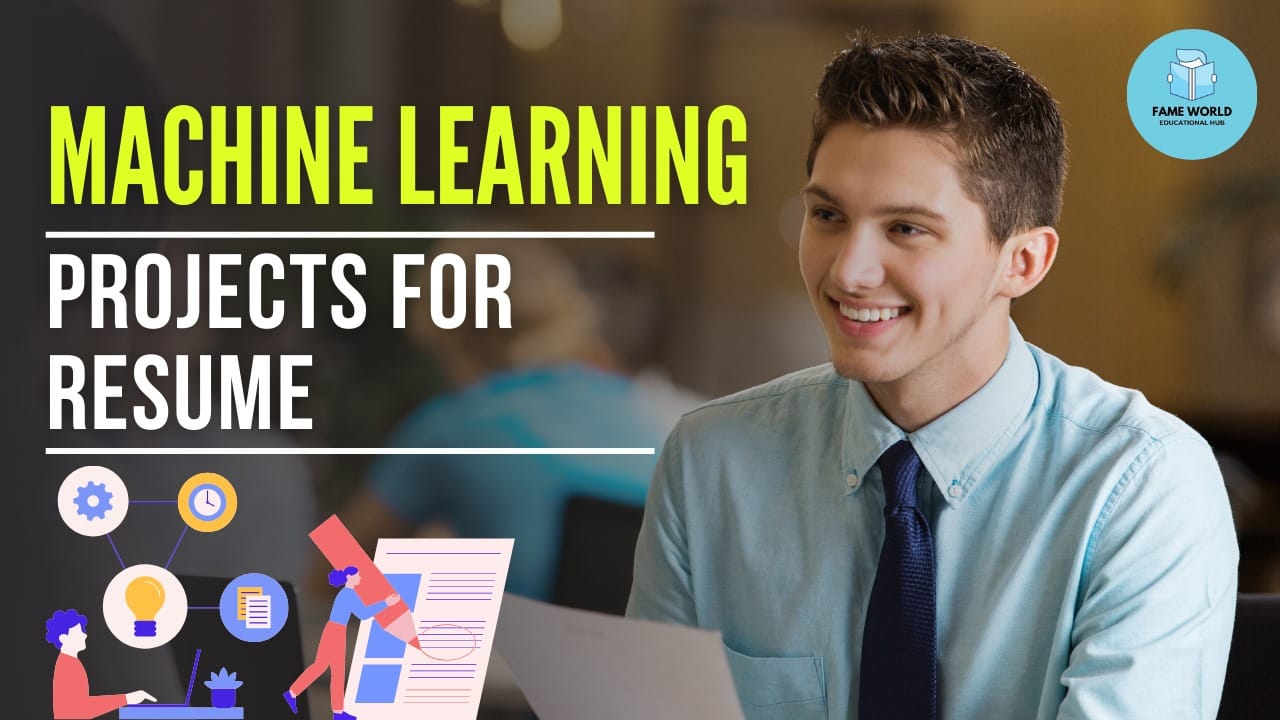The demand for machine learning (ML) professionals continues to soar as industries embrace AI-driven solutions. To stand out in this competitive field, showcasing impactful projects on your resume is essential. The right projects demonstrate not only your technical expertise but also your ability to solve real-world problems. Here’s a guide to some of the best machine learning projects to boost your resume in 2025.
Why Machine Learning Projects Matter
Recruiters look for candidates who can apply theoretical knowledge to practical problems. A well-structured ML project highlights:
- Problem-solving skills: How you approached a challenge.
- Technical knowledge: Your understanding of algorithms, tools, and techniques.
- Creativity: Unique solutions or innovative approaches.
- Communication: The ability to explain results effectively.
Now, let’s dive into project ideas that cater to diverse skill levels.
Beginner-Level Projects
1. Spam Email Classifier
- Objective: Build a model to classify emails as spam or not spam.
- Dataset: SpamAssassin Dataset.
- Tech Stack: Python, Scikit-learn, Pandas, Matplotlib.
- Description: Use natural language processing (NLP) techniques like bag-of-words or TF-IDF to preprocess the email data. Train a logistic regression or Naïve Bayes classifier for predictions.
- Why It’s Valuable: Demonstrates NLP basics and supervised learning skills.
2. Movie Recommendation System
- Objective: Recommend movies to users based on their viewing history.
- Dataset: MovieLens Dataset.
- Tech Stack: Python, Pandas, Scikit-learn, Surprise Library.
- Description: Build collaborative or content-based filtering models to suggest movies. Start with a simple model and later explore advanced techniques like matrix factorization.
- Why It’s Valuable: Highlights expertise in recommendation systems—a highly sought-after ML skill.
3. House Price Prediction
- Objective: Predict house prices based on various features.
- Dataset: Kaggle Housing Dataset.
- Tech Stack: Python, Scikit-learn, Matplotlib, Seaborn.
- Description: Perform exploratory data analysis (EDA), feature engineering, and train regression models such as linear regression or random forests.
- Why It’s Valuable: Demonstrates regression techniques and data preprocessing.
Intermediate-Level Projects
4. Sentiment Analysis on Social Media
- Objective: Analyze sentiment from tweets or Facebook comments.
- Dataset: Twitter Sentiment Analysis Dataset.
- Tech Stack: Python, NLTK, SpaCy, TensorFlow/Keras.
- Description: Preprocess text data using NLP techniques. Build and train deep learning models like LSTMs or transformers for sentiment classification.
- Why It’s Valuable: Demonstrates advanced NLP techniques and neural network skills.
5. Fraud Detection System
- Objective: Detect fraudulent transactions.
- Dataset: Credit Card Fraud Detection Dataset.
- Tech Stack: Python, Scikit-learn, XGBoost, Matplotlib.
- Description: Handle imbalanced datasets using techniques like SMOTE. Train ensemble models like random forests or gradient boosting machines for classification.
- Why It’s Valuable: Showcases expertise in anomaly detection and handling imbalanced datasets.
6. Chatbot Development
- Objective: Develop a conversational AI chatbot.
- Dataset: Collect your own or use open datasets like Cornell Movie Dialogs Corpus.
- Tech Stack: Python, NLTK, TensorFlow, Rasa Framework.
- Description: Use NLP for intent recognition and sequence-to-sequence models for dialogue generation. Implement the chatbot using Rasa for real-world deployment.
- Why It’s Valuable: Combines NLP and deployment skills, demonstrating end-to-end project execution.
Advanced-Level Projects
7. Image Recognition System
- Objective: Classify images into different categories.
- Dataset: CIFAR-10 Dataset.
- Tech Stack: Python, TensorFlow, PyTorch, OpenCV.
- Description: Train convolutional neural networks (CNNs) on the dataset. Experiment with transfer learning to improve accuracy.
- Why It’s Valuable: Demonstrates expertise in computer vision and deep learning.
8. Time Series Forecasting
- Objective: Forecast stock prices or weather conditions.
- Dataset: Yahoo Finance or NOAA Weather Data.
- Tech Stack: Python, Statsmodels, TensorFlow, Prophet.
- Description: Analyze time-series data and build forecasting models using LSTMs, ARIMA, or Prophet.
- Why It’s Valuable: Highlights proficiency in temporal data analysis and forecasting.
9. Autonomous Driving Simulation
- Objective: Build models for object detection in self-driving cars.
- Dataset: KITTI Vision Benchmark Suite.
- Tech Stack: Python, PyTorch, TensorFlow, YOLOv5.
- Description: Train object detection models to identify vehicles, pedestrians, and road signs. Use YOLO or Faster R-CNN for advanced results.
- Why It’s Valuable: Demonstrates skills in computer vision and real-world applications.
10. Personalized Healthcare Advisor
- Objective: Create a system to predict diseases or recommend treatments.
- Dataset: MIMIC-III.
- Tech Stack: Python, Scikit-learn, TensorFlow, Streamlit for UI.
- Description: Analyze patient data using machine learning models. Integrate with a web app for practical usability.
- Why It’s Valuable: Combines ML with a user-focused application, demonstrating full-stack ML skills.
Tips for Presenting Your Projects
- Choose Quality Over Quantity: A few well-documented projects are better than many unfinished ones.
- Document Your Process: Maintain clear documentation for each project. Include the problem, methodology, tools, and results.
- Create a Portfolio: Host your projects on GitHub with clean code and detailed READMEs.
- Showcase Visualizations: Include visuals, dashboards, or interactive elements to make your results compelling.
- Build a Personal Website: Use platforms like GitHub Pages or Squarespace to showcase your projects.
Conclusion
In 2025, the machine learning field will continue to reward those with practical experience and innovative approaches. By building and showcasing these projects, you not only enhance your skills but also create a compelling resume that grabs the attention of potential employers.
Which project will you tackle first? Let us know in the comments below!
Additional learning resources:
PYTHON Q&A SERIES – Link
IOT TUTORIAL SERIES – Link
PYTHON PROGRAMMING TUTORIAL SERIES – Link
CAREER TIPS – Link
CLOUD COMPUTING – Link
MERN FULL STACK WEB DEVELOPMENT – Link
DJANGO SERIES – Link
DIGITAL MARKETING – Link
C LANGUAGE – Link
CODING INTERVIEW PREPARATION – Link
NEW AI TOOLS – Link
PYTHONISTA FOR PYTHON LOVERS – Link
ARTIFICIAL INTELLIGENCE – Link
MACHINE LEARNING USING PYTHON – Link
DBMS – Link
PYTHON PROGRAMMING QUIZ SERIES – Link
BLOCKCHAIN TECHNOLOGY TUTORIAL SERIES – Link
NETWORKING QUIZ SERIES – Link
CYBER SECURITY Q&A SERIES – Link
PROGRAMMING RELATED STUFF – Link



